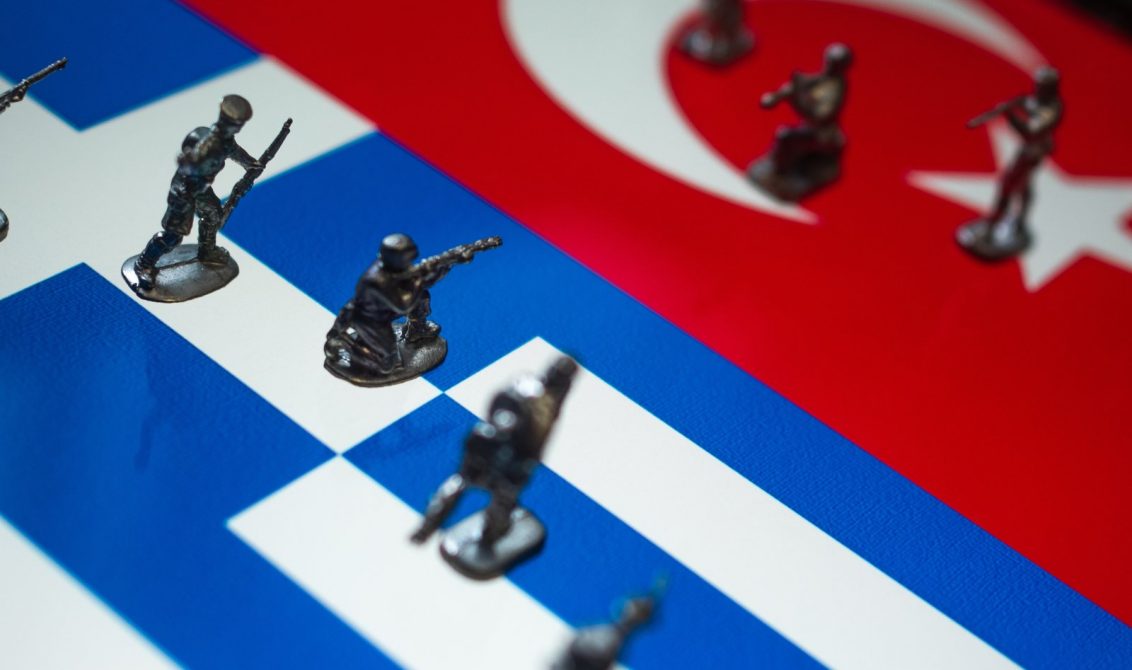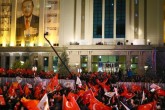Tensions between Türkiye and Greece continue to run high. The most recent development involved a Greek S-300 air defense system, stationed in Crete, placing a radar lock on Turkish F-16 fighter jets conducting a NATO mission in the Aegean and the Eastern Mediterranean on Aug. 23.
It is no secret that the Turkish side has been unhappy with the Greek government’s militarization of the Aegean islands in violation of the peace treaties of Lausanne and Paris and the United States military buildup in that country. To add insult to injury, Prime Minister of the Hellenic Republic Kyriakos Mitsotakis attempted to stop the U.S. Congress from signing off on the delivery of F-16 fighter jets to Türkiye after shaking hands with President Recep Tayyip Erdoğan. That move undermined the pursuit of normalization, to which Türkiye had remained committed despite challenges.
In Greece, where the aftershocks of an eavesdropping scandal targeting the country’s opposition parties are still being felt, the various political parties are getting ready for a potential early election in October. It would seem that Mitsotakis, who would like to play the “Türkiye card” on the campaign trail, is pursuing a dangerous policy of escalation – as his government’s use of the S-300 air defense system clearly demonstrated.
The growing power of Türkiye, which came to play more active roles in regional and global issues in recent years, certainly represents an important piece of rhetorical ammunition for Greek politicians.
Behind the scenes
It is certainly possible to argue, moreover, that the Mitsotakis government views its defensive engagements with France and the U.S. as a guarantee seeking to escalate tensions with Türkiye. That situation not only takes an additional toll on the relations between the two NATO allies but also undermines the unity of the alliance.
It is possible that some folks in Washington, who want Greece to play a central role in their geopolitical plans, encourage Athens to take certain risks that it simply cannot live with. Keeping in mind that Türkiye and Greece will hold elections around the same time, that escalation cannot be considered an auspicious development.
There is no doubt that Greece views Türkiye as a “formidable other” – with reference to which it defines itself. To impose its maximalist demands on Türkiye, Athens constantly looks for new opportunities to provoke Ankara.
For the record, it is impossible to argue that Türkiye acts the same way. After all, Türkiye competes at an entirely different level. The country’s diplomatic engagements with the great powers certainly exceed the limits of Greece’s imagination. Accordingly, Ankara would prefer to cooperate, rather than experience tensions, with its neighbor. That does not mean, however, that the Turks would turn a blind eye to Greece’s attempts to impose certain terms with EU or U.S. support.
Power rivalry
The Western governments and Athens need to keep the following in mind: There are major disagreements between Türkiye and Greece in the Aegean and the Eastern Mediterranean – such as the delimitation of territorial waters and airspace, the demilitarization of the Aegean islands and the status of Cyprus— which are rather difficult to address. Those problems will not go away as a result of “power rivalry,” faits accomplis or support from third parties.
As the Republic of Türkiye marks its centenary of crossing a symbolic threshold, both nations are getting ready for elections. Obviously, Mitsotakis might be counting on escalation to perform better in the election. It is certainly possible, too, that he would welcome a strong statement from Erdoğan at this time.
Let me repeat the following: The challenging issues between Türkiye and Greece might not be able to endure the mounting pressure of elections, which will be held almost simultaneously. Mitsotakis, who keeps igniting tensions because he counts on his backers, hurts his own country by allowing visitors from Washington to distort the balance of Greek politics.
With elections approaching, the ongoing tensions are at risk of turning into a dangerous cycle.



